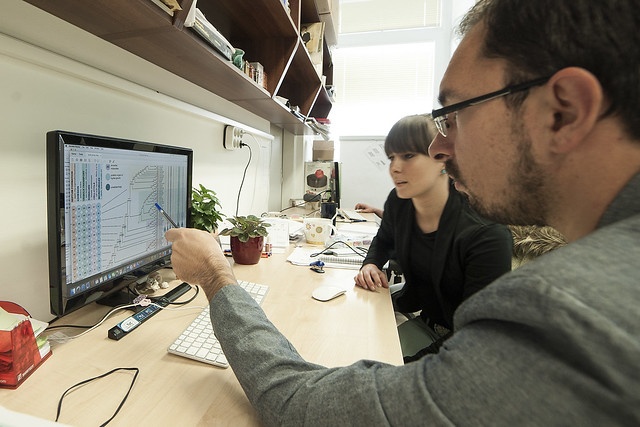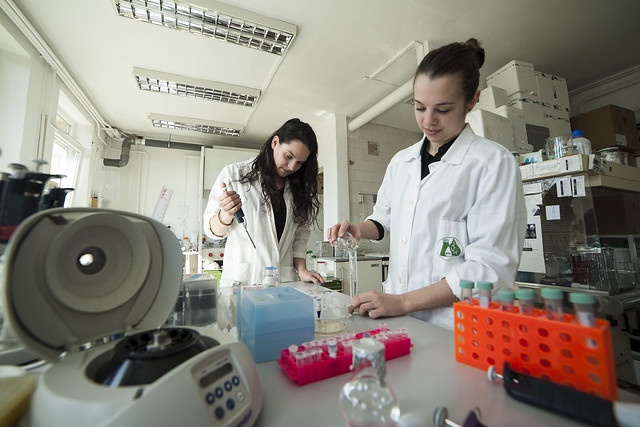Performance report on MTA research network institutes concluded
MTA’s research institute network ranks as one of the best in Europe. The performance of the network is excellent and includes several research institutes that are on the cutting edge of science and should be regarded as national treasures. There is no need for a fundamental restructuring of the research network, but as is the case for every system, there are opportunities for development, for example, by including young researchers more intensively. These are the most important conclusions drawn from a professional comprehensive audit carried out by Hungarian and international experts delegated by the MTA and the Ministry for Innovation and Technology (ITM) along international standards. The Academy ordered this audit at the request of the ITM.
Prior to the audit, the Scientific Presidential Committee of the Research Network (KTEB) was established in November 2018. The committee, made up of fourteen members, seven of which were delegated by the MTA and the ITM, respectively, determined the principles, criteria and methodology for the audit of the research sites to be carried out with the participation of international experts.
The operation and performance of the MTA research network has been analysed several times in the past years. The scientific performance test of the network between 2010 and 2015 was concluded in 2017. Therefore, KTEB suggested during the 2019 audit that not only the results of previous audits be taken into consideration, but – where applicable – also the results of international audits in the past decade. Experts from the external advisory boards of research institutes played a significant role in previous audits.
 Credit: mta.hu/Tamás Szigeti
Credit: mta.hu/Tamás SzigetiThe Scientific Presidential Committee of the Research Network (KTEB) unanimously accepted a list of professional criteria together with their expectations concerning the audit.
Audit criteria
- The scientific results of the institute or research group based on its publications and citation indices (compared to the international/V4/national standards of each field of science).
- Connections of the institute with market players and the utilisation of its results in the economy and other areas of society.
- The social services offered by the institute, its preservation of our national cultural heritage and its efforts in popularising science.
- The participation of the researchers of the institute in the national and international scientific world (organising of and participation in conferences, memberships or leading roles in scientific organisations, evaluation activities, et cetera) and success in obtaining grants.
- The participation of the researchers of the institute in higher education, with a special emphasis on PhD programmes.
- The composition of the institute’s personnel (researcher ages, researcher replacement and fluctuation, scientific qualifications).
- The structure and practice of the management of the institute.
- An assessment of the structure and effectiveness of research funding in the institute; the quality and utilisation rate of the research infrastructure.
- Other factors specific to the given institute (e.g. synergies, international and national scientific networks, collaborative efforts).
You can read more about the criteria and expectations in a separate article.
The required deadline of the audit launched in January 2019 was 31 March 2019, which was regarded by the Academy as too tight. Therefore, the Academy helped evaluating committees in their work by providing them with all the supervisory reports on the scientific performance and strategy of the Academy’s research network between 2010 and 2015. Furthermore, objective statistical data for the years since the last audit were also provided by each relevant research unit. The international evaluation was also aided by the earlier resolutions of the external advisory boards.
The audit took place in accordance with the resolutions of the Scientific Presidential Committee of the Research Network (KTEB) and the extraordinary General Assembly on 6 December 2019.
 Credit: mta.hu/Tamás Szigeti
Credit: mta.hu/Tamás Szigeti The members of the supervisory board of the academic research network, that is, the Council of Research Institutes (AKT), received a detailed written guide on the objectives of the audit, the preparatory steps of the process, the work of different organisations taking part in the audit, and the documents and data provided to the evaluating committees. At their meeting on 4 April 2019, the members of the AKT were presented with the report on the evaluation of the MTA’s research network and approved the report. AKT’s resolution suggests that the Academy should rely on the results of the audit during negotiations with the ITM.
The AKT members expressed their gratitude to the scientists who had worked devotedly in preparing the reports for the audit despite the very tight deadline, and also to all those leaders and colleagues at the research sites and the Secretariat of MTA, who helped prepare the audit report. The Presidium of the MTA is to take a decision on the AKT’s resolution on 16 April.
One of the best research networks in Europe
According to the professional audit completed with the help of international experts along internationally recognised standards, the research network of the Hungarian Academy of Sciences ranks as one of the best in Europe. The average age of its researchers is around 40, one-third of them are women, and the average age of the leaders of the research groups is decreasing.
The performance of the research network is excellent; based on the relationship between support and number of publications, the network is among the best in Europe, and there are several research workshops on the cutting edge of science which can be regarded as national treasures.
Consequently, there is no need to fundamentally reconstruct the network. Naturally, as with all systems, it can also be developed further.
The audit report revealed that since the previous audit in 2017, which examined a five-year-long period, the performance of the research network has further improved in the following fields: number of successful international grants; number of articles published in renowned international journals; and cooperation among scientific fields.
Major results of the audit broken down by fields of science
Mathematics and natural sciences
The performance of the research centres and research institutes proved to be excellent for the majority of research sites for all the audit criteria. The summary evaluation repeatedly states that these research sites play a significant role at the international level, and some research sites are heading the consortium of long-term national research programmes. The document notes that basic support is essential for operational predictability and that the independence of the research sites is an important value. However, the inner restructuring of the leadership of certain institutes could lead to greater efficiency.
Life sciences
In general, the research centres, institutes and groups were mostly evaluated as excellent or good. The audit report highlighted the success of several research sites in winning international grants and also that results are communicated widely in a successful manner. According to the compilers of the report, the most important directions for development should be enhancing integration inside research centres and enriching the cooperation between research groups in institutes. Furthermore, at certain research sites young researchers should be included to a greater degree and cooperation with industrial market players should also be enhanced.
Humanities and social sciences
According to the report evaluating the research centres, institutes and research groups dealing with humanities and social sciences, they contribute greatly to the exploration and availability of a universal and national cultural heritage; additionally, they help strengthen a sense of belonging to Europe and develop national identity awareness. Furthermore, they play an important role in exploring the economic and social challenges of the present and the future and in finding possible solutions to these challenges.
The scientific performance of these research sites was mostly regarded as excellent, and in some cases, good. Only a few institutes received a “satisfactory” evaluation for certain sub-criteria The evaluating committee suggested that the number of active academicians be increased for some research sites. They regarded as crucial the making of work conditions appealing for talented young researchers in the humanities. These researchers could become leading researchers in the medium and long run. However, owing to their talent and age, these colleagues are very agile, and if circumstances are unfavourable in Hungary, they can easily find research positions abroad.
